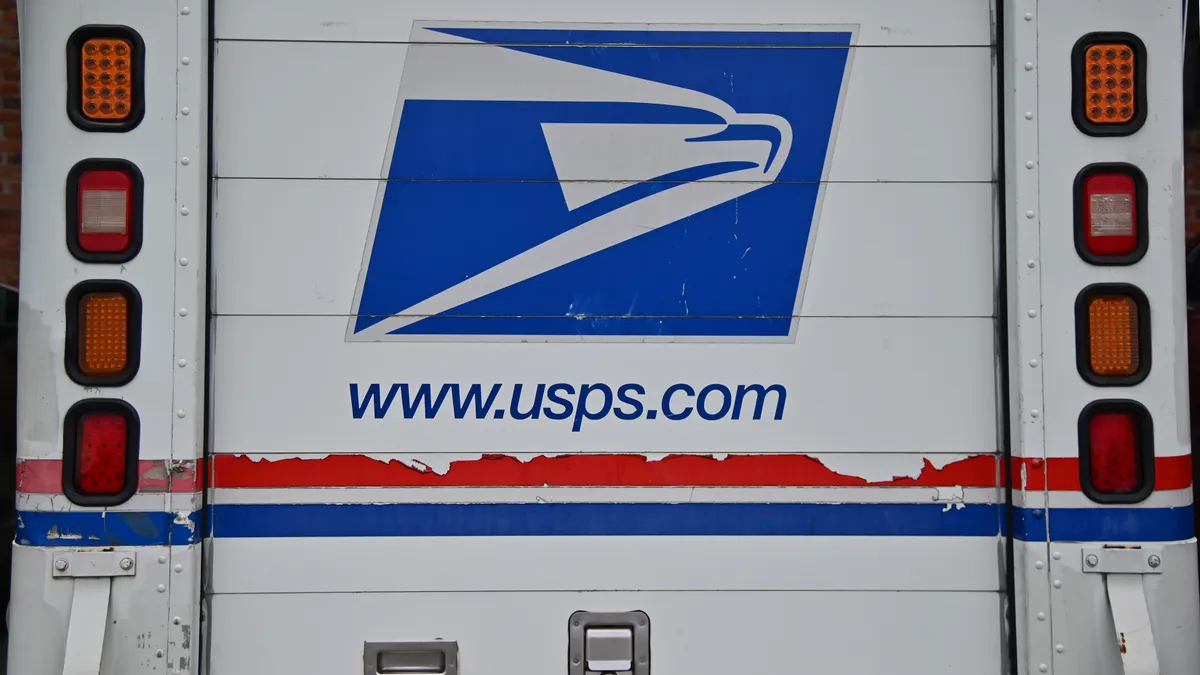As Americans cast their ballots in the upcoming Nov. 3 general election, observers have already noted the potential for record levels of early-voting turnout. According to the U.S. Elections Project, close to 80 million have voted early via mail-in or in-person ballot as of Oct. 29, and the total number of ballots casted this year has already surpassed 50% of the 2016 general election's total ballot count.
HR departments are understandably thinking about the policy goals and agendas of President Donald Trump and former Vice President Joe Biden, which cover workplace issues including minimum wage, diversity training programs and immigration. But voters also have the opportunity to decide the fate of numerous initiatives that could impact these areas and others in their home states.
Of 120 statewide ballot measures in 32 states, HR Dive has identified 10 measures that, if passed, could impact a range of employment issues. Which ballot measures are you keeping an eye on? Let us know at [email protected].
Minimum wage, paid leave and more
California Proposition 22: Designating the state's app-based drivers independent contractors
Prop 22 is the latest development in the ongoing saga over California's decision to adopt a new test to determine whether so-called gig workers in the state must be classified as employees, rather than independent contractors. In September 2019, Gov. Gavin Newsom signed into law Assembly Bill No. 5, also known as AB-5, which codified a worker-friendly classification test for independent contractors first articulated by the California Supreme Court.
As a result, a number of gig economy companies, including Lyft, Uber, DoorDash and Instacart, launched a campaign to support a ballot initiative that would allow workers on the companies' apps to continue to operate as independent contractors. A series of 2020 rulings by state appellate courts raised the stakes for Prop 22, as federal judges ordered Lyft and Uber to reclassify California drivers as employees.
The ballot measure would establish that certain "app-based driver[s]" are independent contractors and not employees. Prop 22 contains a number of other provisions for such workers, such as a "net earnings floor" that "establishes a guaranteed level of compensation for app drivers that cannot be reduced"; a healthcare benefits subsidy; and antidiscrimination and public safety requirements to be met by app-based companies.
California Proposition 16: Affirmative action programs at state and public institutions
A "yes" vote on Prop 16 supports the repeal of a 1996 provision within California's state constitution that prohibits certain state institutions from discriminating against, or granting preferential treatment to, any individual or group on the basis of race, sex, color, ethnicity, or national origin in the operation of public employment, public education, or public contracting.
According to Prop 16's official title and summary, the initiative would instead allow such institutions "to consider race, sex, color, ethnicity, or national origin to address diversity" in their decision-making policies. It would effectively restore the ability of such institutions to use affirmative action programs, according to nonprofit news outlet CalMatters.
Colorado Proposition 118: Creating a paid family and medical leave program
If passed, Prop 118 would establish a paid family and medical leave program in the Centennial State. Among the details: leave would be capped at 12 weeks with an additional four weeks for pregnancy or childbirth complications, with a cap on the weekly benefit amount; the program would guarantee job protection for and prohibit retaliation against an employee who takes the leave; and employers that "offer an approved private paid family and medical leave plan" would be exempted from the program.
Employees would be able to take leave because of a birth, adoption or placement through foster care; a need to care for a family member with a serious health condition; a need to care for their own serious health condition; any qualifying exigency leave; or a need for "safe leave" in cases such as those involving domestic violence or sexual assault or abuse. Employees would be able to take the leave intermittently. The maximum benefit under the proposal would be 90% of the state average weekly wage, except that for leave beginning before Jan. 1, 2025, the maximum weekly benefit would be $1,100.
Payroll premiums (i.e., a payroll tax) would fund the program; between Jan. 1, 2023, and Dec. 31, 2024, employers would pay for a premium of 0.9% of each employee's wages, up to a cap. Beyond this date, the premium would be capped at 1.2% of each employee's wages. Employers would also be able to deduct up to 50% of the premium amount from an employee's wages while paying the remainder of the premium. The program would exclude small businesses with fewer than 10 employees from paying the premium.
Local governments would be able to opt out of the program, but their employees would still be eligible to participate, as would self-employed individuals.
Florida Amendment 2: Raising the state's minimum wage incrementally to $15 an hour
Florida voters could vote to incrementally increase the state minimum wage. Per the initiative's text, the minimum wage would first be increased to $10 per hour effective Sept. 30, 2021. From that point, the minimum wage would increase annually by $1 per hour until reaching $15 per hour on Sept. 30, 2026. Future increases would revert to annual adjustments accounting for inflation beginning Sept. 30, 2027.
In passing Amendment 2, Florida would join seven other states — and some areas of New York — that plan to increase minimum wages to $15 an hour at some future point, according to a database maintained by the National Conference of State Legislatures.
Five states will vote on marijuana measures
Four states will include ballot questions regarding legalization of recreational marijuana use: Arizona, New Jersey, Montana and South Dakota.
Arizona
Arizona voters will vote on Proposition 207 which, if passed, would legalize possession and use of marijuana for adults ages 21 and older. The initiative would not affect the ability of employers to restrict marijuana use by employees or prospective employees, and it would not require that employers accommodate marijuana use, sale or consumption in a place of employment.
New Jersey
In New Jersey, voters will vote on Public Question 1, also known as the Marijuana Legalization Amendment. If passed, Question 1 would amend the state's constitution to legalize recreational marijuana use by persons age 21 and older, as well as the cultivation, processing, manufacturing and sale of marijuana. The amendment does not provide information regarding its impact on employers' operations.
Montana
Montana voters will vote on Initiative I-190 which, if passed, would legalize possession and use of one ounce or less of marijuana or eight grams or less of marijuana concentrate for people over 21 years of age. However, the initiative would not prohibit employers from disciplining an employee for violation of a workplace drug policy or for working while intoxicated by marijuana. It also would not prohibit employers from refusing to hire, discharging, disciplining or otherwise taking an adverse employment action against an employee for violating a drug policy or working while intoxicated by marijuana.
South Dakota and Mississippi
South Dakota voters may vote to legalize recreational use for persons 21 years or older by voting "yes" on Constitutional Amendment A. Similar to the initiatives in Arizona and Montana, Amendment A includes provisions stating that it would not require that an employer permit or accommodate marijuana use, nor would it affect an employer's ability to restrict use.
Additionally, South Dakota is one of two states — joining Mississippi — in which voters will vote on ballot initiatives that, if passed, would establish a state medical marijuana program.
South Dakota's initiative, Initiated Measure 26, would afford qualifying medical marijuana patients "all the same rights under state and local law, as the person would be afforded if the person were solely prescribed a pharmaceutical medication," including during drug testing by and any interaction with their employers. Employers would not be required to allow cannabis ingestion in the workplace, nor would they be required to allow employees to work under the influence of cannabis, but a "registered qualifying patient may not be considered to be under the influence of cannabis solely because of the presence of metabolites or components of cannabis that appear in insufficient concentration to cause impairment," per the proposal's text.
This is the third time South Dakota voters will be asked to decide the question of medical marijuana legalization in the state, which has been rejected by voters twice before, according to Jim P. Reidy, shareholder at Sheehan Phinney. Reidy said South Dakota's inclusion of two marijuana legalization initiatives — one on recreational use and one on medical use — on the same ballot is "unusual" compared to what has been done in other U.S. states. More often, states first consider decriminalization before deciding to legalize recreational use, he noted.
In Mississippi, voters may choose between two different versions of the same ballot initiative, Initiative 65 and Alternative 65A, or they may also vote for "neither measure." Initiative 65 would not require employers to accommodate on-site medical marijuana use, nor would it affect any "existing drug testing laws, regulations, or rules." Alternative 65A differs from its counterpart in that it would restrict marijuana smoking to terminally ill patients.
Correction: An earlier version of this story misspelled Gov. Gavin Newsom's name. HR Dive regrets the error.




















